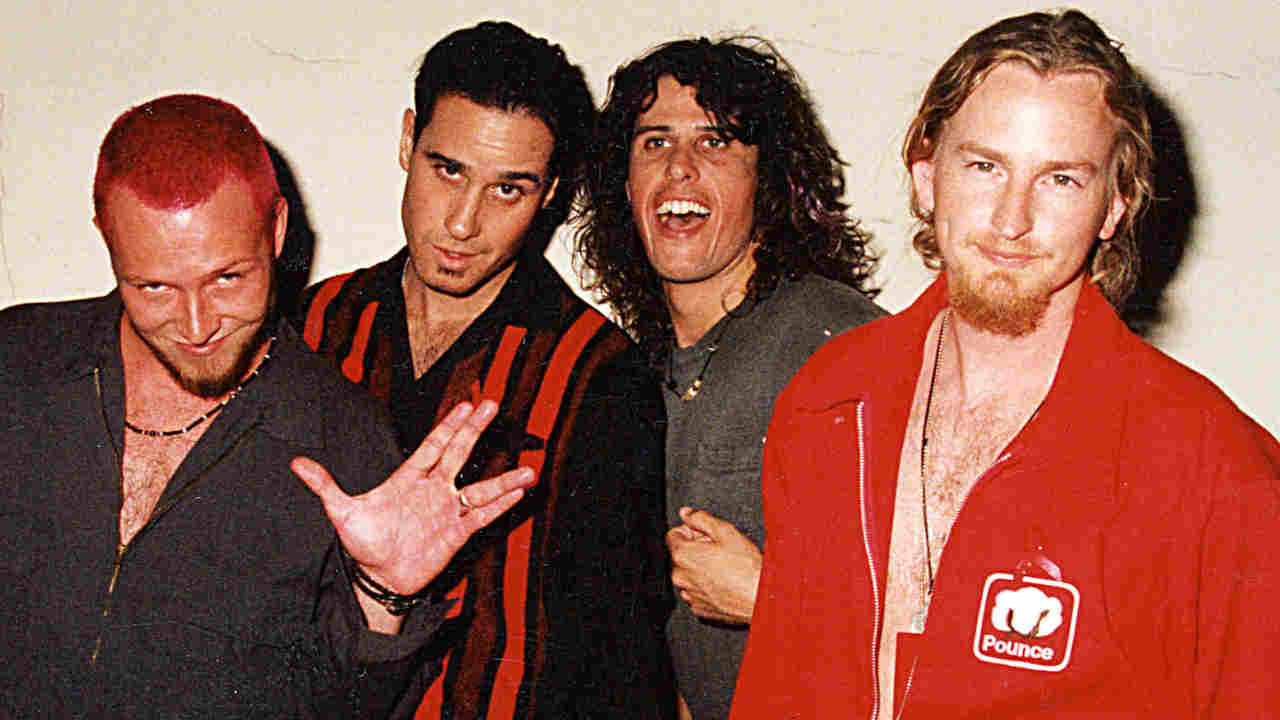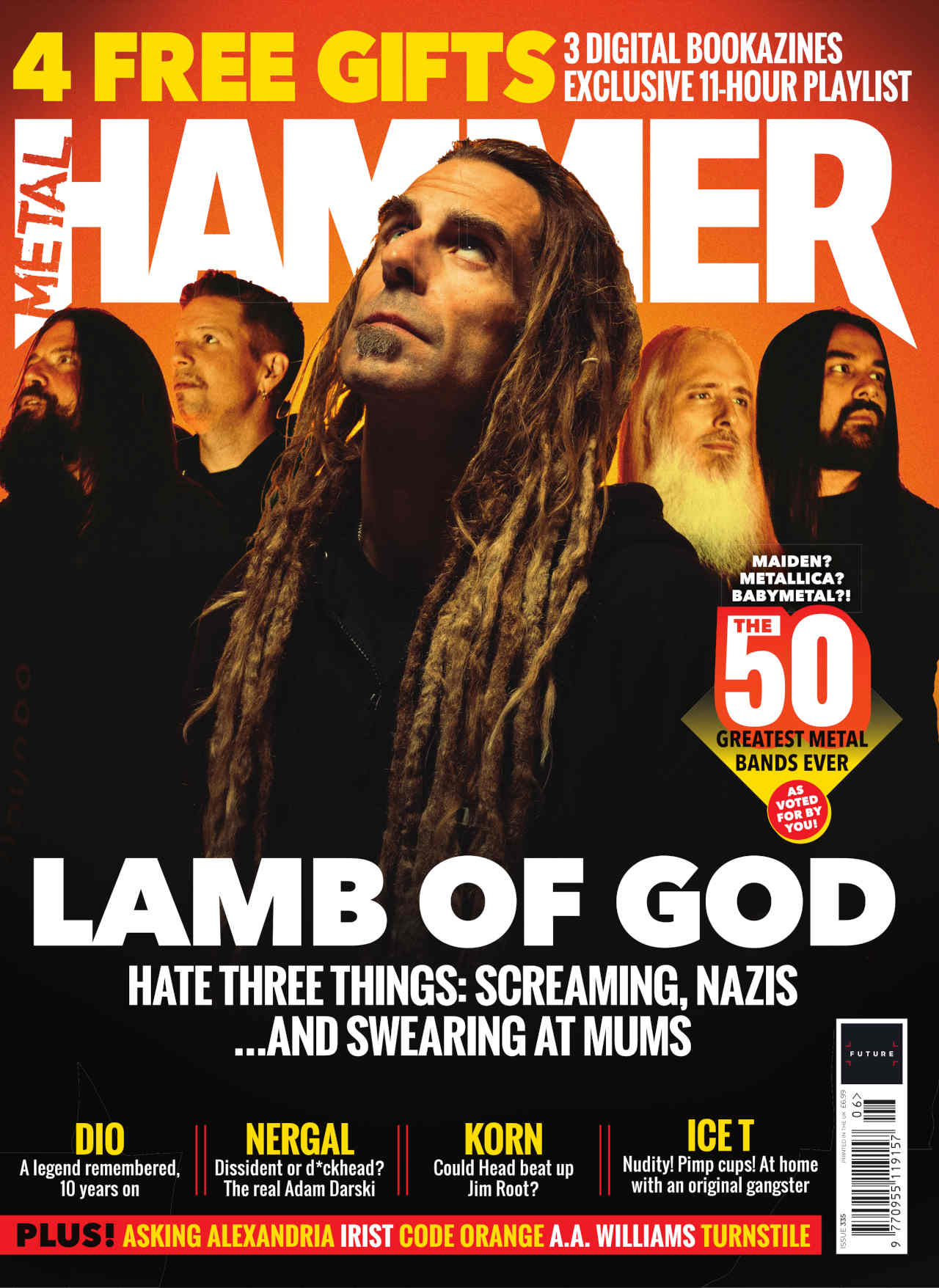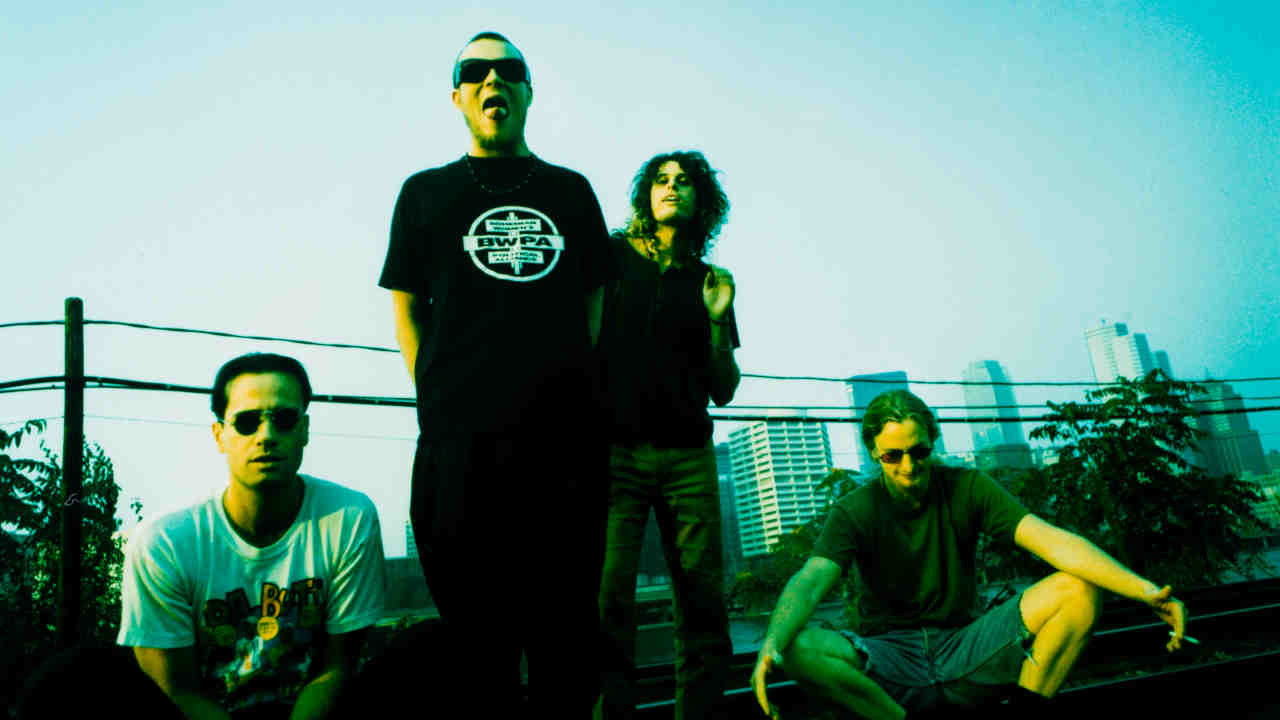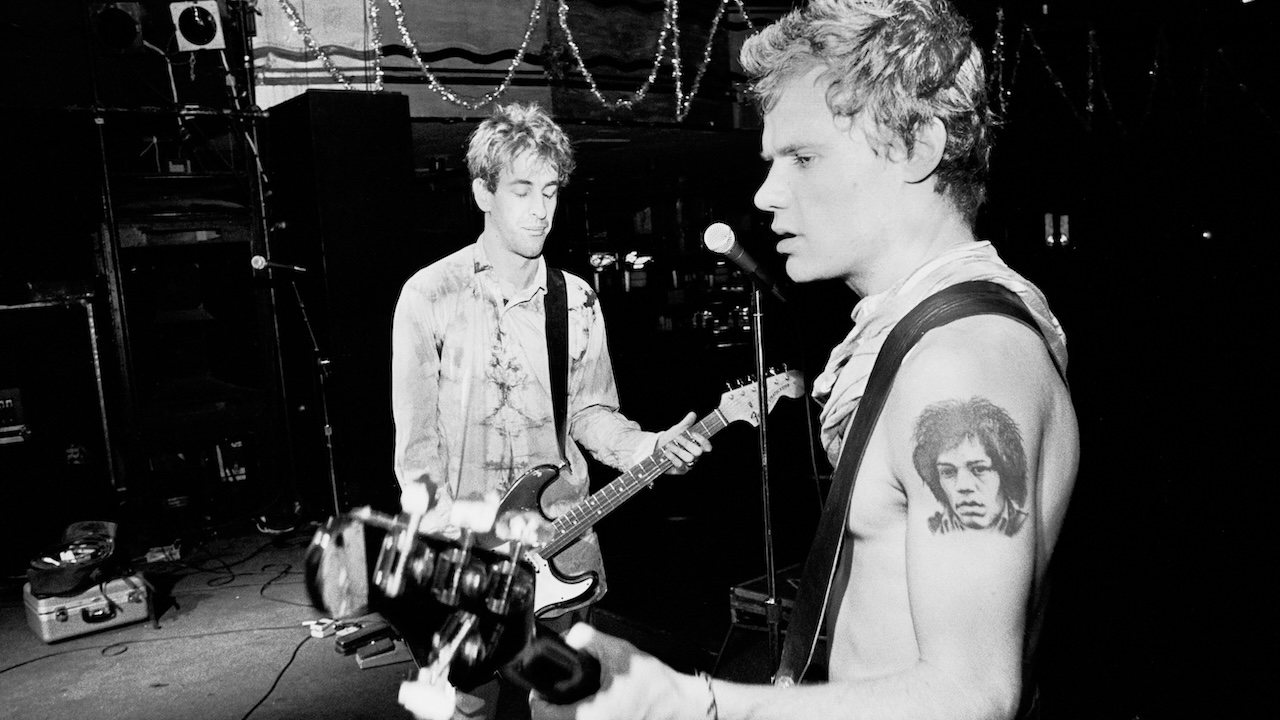“I don’t know too many people that could have handled that pressure coming at you at such speed. It can be a deadly thing”: How grunge’s ‘worst’ band wrote the hit song that silenced the critics
It was written on a $25 guitar and became one of the biggest hits of 1994

Select the newsletters you’d like to receive. Then, add your email to sign up.
You are now subscribed
Your newsletter sign-up was successful
Want to add more newsletters?

Every Friday
Louder
Louder’s weekly newsletter is jam-packed with the team’s personal highlights from the last seven days, including features, breaking news, reviews and tons of juicy exclusives from the world of alternative music.

Every Friday
Classic Rock
The Classic Rock newsletter is an essential read for the discerning rock fan. Every week we bring you the news, reviews and the very best features and interviews from our extensive archive. Written by rock fans for rock fans.

Every Friday
Metal Hammer
For the last four decades Metal Hammer has been the world’s greatest metal magazine. Created by metalheads for metalheads, ‘Hammer takes you behind the scenes, closer to the action, and nearer to the bands that you love the most.

Every Friday
Prog
The Prog newsletter brings you the very best of Prog Magazine and our website, every Friday. We'll deliver you the very latest news from the Prog universe, informative features and archive material from Prog’s impressive vault.
By the spring of 1994, Stone Temple Pilots had notched four million sales of their debut album, Core, yet found themselves dismissed as the grunge scene’s arch opportunists: lambasted for claiming a place alongside the kingpins of the Seattle explosion, but coming from San Diego. In the eyes of their detractors – and there were many – this was all too convenient. Although the band tried to draw the positives from the situation, being hailed as the Best New Band of ’94 by the readers of Rolling Stone but also its Worst New Band by the same magazine’s critics is bound to screw with your head.
While out on the road on a 14-month campaign for Core, the group had written an even more colourful and inventive set of songs. With these they were confident of making a follow-up album big and important enough to free the band from the ‘grunge’ tag.
“People sometimes talk about the curse of the sophomore slump, but we didn’t pay any heed to that,” bassist Robert DeLeo remarks casually of their second album, Purple. “We knew that the songs we had were pretty special.”
One of these new tunes had been composed by the bassist while sitting in the passenger seat of a Winnebago motorhome in which the group zig-zagged across North America. These origins were appropriate, as the song, Interstate Love Song, became the perfect soundtrack for driving with the window down.

“I wrote that song on a nylon-stringed guitar that had cost just $25,” Robert says with a chuckle. “I’ve now got a $125 nylon-stringed guitar,” he adds, whipping out said instrument to play the song’s signature riff in its original form down the phone. “It began as a [Brazilian music style] bossa nova tune but I didn’t think people would like that so much, so I added a country riff and a melody I had floating around in my head.”
Although the process only took “around 10 minutes”, Robert knew straight away that he had come up with something of considerable value. “This was a different level of writing for me,” he acknowledges.
It was during the recording of the song for Purple that vocalist Scott Weiland threw in the ‘Interstate’ part of the title. And while the band worked at Southern Tracks Recording in Atlanta, his fiancée Janina Castaneda remained at home in California. Their relationship was on the rocks due to the singer’s hidden yet worsening addiction to heroin, and the words he came up with for it bled out deceit and broken promises. Each night Weiland would bury his shame and place long, emotional calls to Janina, insisting that he was clean. “The words are about the lies I was trying to conceal while making the Purple record,” the singer later admitted.
“The song’s meaning wasn’t completely obvious, but when you know what it was about it’s a very poetic piece,” Robert says now. “But as a writer, Scott always was very poetic. He also liked to leave the listener to make up their own minds as to a song’s interpretation.”

As with Core, Stone Temple Pilots called upon the services of producer Brendan O’Brien for Purple. “We trusted Brendan completely and the process felt very natural,” Robert recalls. “It’s pretty incredible to think that Purple was tracked, mixed and out of the door in just 11 days.”
In an interview from the time, drummer Eric Kretz said, “We would maybe be worrying that a song sounded a little too close to Alice In Chains or Pearl Jam, and each time Brendan talked us out of that.”
“Brendan wasn’t an over-thinker. He was a doer,” Robert agrees. “It was a privilege to make records with him, and we certainly were not trying to copy anybody else.”
A quarter-century down the line, those accusations of his band being Pearl Jam rip-offs, when juxtaposed by the love of millions of fans, now prompt the bassist to break into a wry smile.
“Oh, I don’t know,” he shrugs nonchalantly. “I didn’t read any of that stuff. I certainly wasn’t making records for the press. For me, the joy of it all was writing music, something that still motivates me today.”
Oh c’mon… it must have rankled just a little bit?
“No. Such criticism was never really a concern to me,” he responds patiently. “We were working with people of Brendan’s stature, and those were the opinions that mattered to me. Everything except the writing and performing of the songs was simply fluff.”
Thanks in part to the success of Interstate Love Song and the album’s other singles Vasoline and Big Empty, Purple was a massive commercial success, topping the Billboard chart for three weeks and selling more than six million copies. Robert admits that the band’s seemingly instant celebrity became a problem.
“I’m still taking medication for the fact,” he laughs. “I don’t know too many people that could have handled that pressure coming at you at such speed. It will either make you stronger or everything starts unravelling. We all handled it differently, but safe to say it can be a deadly thing.”
Like so many before him, Scott Weiland chose to find refuge in drugs and alcohol. To say that this made him an unreliable bandmate would be a significant understatement. Over the coming years Weiland would be in and out of both STP and rehab, causing tours to be canned and expensive recording sessions to be aborted when he failed to turn up.
More catastrophic still, in May 1995, after Purple had debuted at No.1 in America, Weiland was arrested in Pasadena for drug possession. Having been bailed out of jail, the increasingly erratic singer jumped from the window of a moving car, bought a bag of heroin and promptly vanished. For a while the rest of STP –including Robert’s brother. guitarist Dean DeLeo - hired another singer and operated under the name of Talk Show, but it was STP that the public really wanted.
“During that whole period I learned how to garden very well,” Robert sighs. “I’m not kidding; you can either sit around waiting for the band to get up on its feet again, or you can work on getting green fingers. I did the latter.”
Scott quit STP in 2002 and went on to form Velvet Revolver with Guns N’ Roses guitarist Slash and bass player Duff McKagan. Sadly, these bandmates would have to learn to live with the same sense of frustration. Five years later, following another relapse, Velvet Revolver fired Scott. Finally, at the age of 48, following an accidental overdose of cocaine, alcohol and MDA, Weiland was found dead on the tourbus while on the road with his group The Wildabouts in 2015.
Some might consider Scott’s fate inevitable following the loss of his close friend and Wildabouts bandmate Jeremy Brown, the cancer diagnoses of both his mother and father, massive financial worries, estrangement from his children, self-medication and, above all, mental illness. That didn’t make it any less tragic.
In 2013, STP caused a sensation by hiring none other than Linkin Park’s Chester Bennington as their singer. Over the course of two years this arrangement would yield only a four-song EP, High Rise, and some live dates. Robert believes that Chester, who died by suicide in the summer of 2017, by which time he was refocusing on Linkin Park, never really got a fair crack of the whip as a member of the Pilots.
“No, he absolutely didn’t, and I really, really miss Chester,” the bassist rues. “He was a lovely human being and we needed his positive energy in our world at that time. However, there really was no time for our relationship to blossom, and I’m saddened when I think about Chester every day – just like I think about Scott.”
In the meantime, Stone Temple Pilots continue to tour and record, and also to perform Interstate Love Song at their gigs. Why not? Sometimes when the going gets tough, the only response is to leap into a car, throw down the top and burn rubber.
Robert DeLeo insists that the song still remains valid in the hands of their current lead singer, Jeff Gutt, a former The X Factor contestant who joined the group in 2017.
“Playing live is a bit like attending a high school reunion – you snap right back into where you were all those years ago,” Robert concludes, returning the $125 guitar to its case. “And you know what? Someday I’d still like to record Interstate Love Song as a bossa nova.”
This feature was originally published in Metal Hammer issue 335 (July 2019)

Dave Ling was a co-founder of Classic Rock magazine. His words have appeared in a variety of music publications, including RAW, Kerrang!, Metal Hammer, Prog, Rock Candy, Fireworks and Sounds. Dave’s life was shaped in 1974 through the purchase of a copy of Sweet’s album ‘Sweet Fanny Adams’, along with early gig experiences from Status Quo, Rush, Iron Maiden, AC/DC, Yes and Queen. As a lifelong season ticket holder of Crystal Palace FC, he is completely incapable of uttering the word ‘Br***ton’.
You must confirm your public display name before commenting
Please logout and then login again, you will then be prompted to enter your display name.

